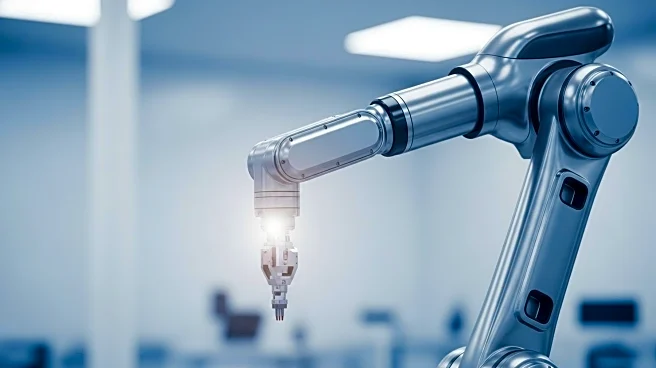What's Happening?
Tesla has unexpectedly terminated a contract with MPW Industrial Services Inc., an Ohio-based industrial service provider, at its Gigafactory Texas. This decision has led to the layoff of 82 workers who were involved in supporting Tesla's production operations at the Austin facility. The Texas Workforce Commission issued a WARN notice on August 27, 2025, detailing the layoffs, which include positions such as technicians, team leads, supervisors, and managers. These workers are not union-represented and have no bumping rights. The layoffs are set to take effect on September 1, 2025. This move follows previous layoffs at the plant, where over 2,000 employees were dismissed in April 2024.
Why It's Important?
The termination of the contract and subsequent layoffs at Gigafactory Texas highlight potential challenges Tesla faces in maintaining its workforce amid fluctuating sales. The layoffs could signal broader economic implications for the electric vehicle industry, particularly as Tesla anticipates a downturn in U.S. EV sales. This development may affect local economies in Austin and the surrounding areas, as well as the broader industrial service sector. The decision to cut staff could be a strategic move to manage costs and production levels in anticipation of reduced demand.
What's Next?
Tesla may continue to adjust its workforce and production strategies in response to market conditions. Industry analysts will likely monitor Tesla's actions closely, as further layoffs could be indicative of larger trends within the EV market. Stakeholders, including local government and business leaders, may seek to address the economic impact of these layoffs on the community. Additionally, Tesla's future sales performance and strategic decisions will be crucial in determining the company's operational direction.
Beyond the Headlines
The layoffs at Gigafactory Texas may raise questions about Tesla's long-term sustainability and its ability to adapt to changing market dynamics. Ethical considerations regarding workforce management and corporate responsibility may also come into play, as Tesla navigates the balance between cost-cutting measures and employee welfare. The situation could prompt discussions on the role of automation and efficiency in manufacturing, as companies like Tesla strive to optimize operations.









